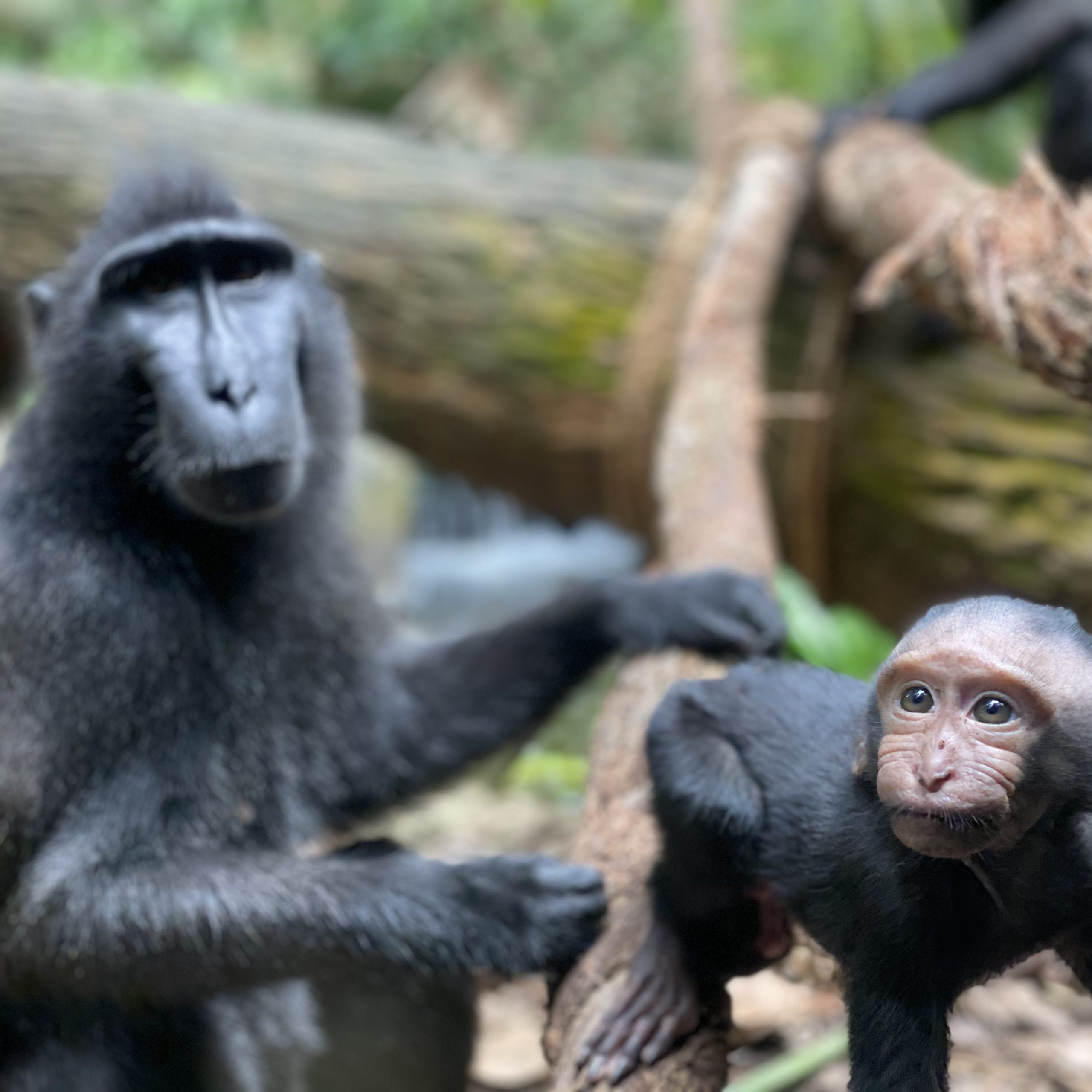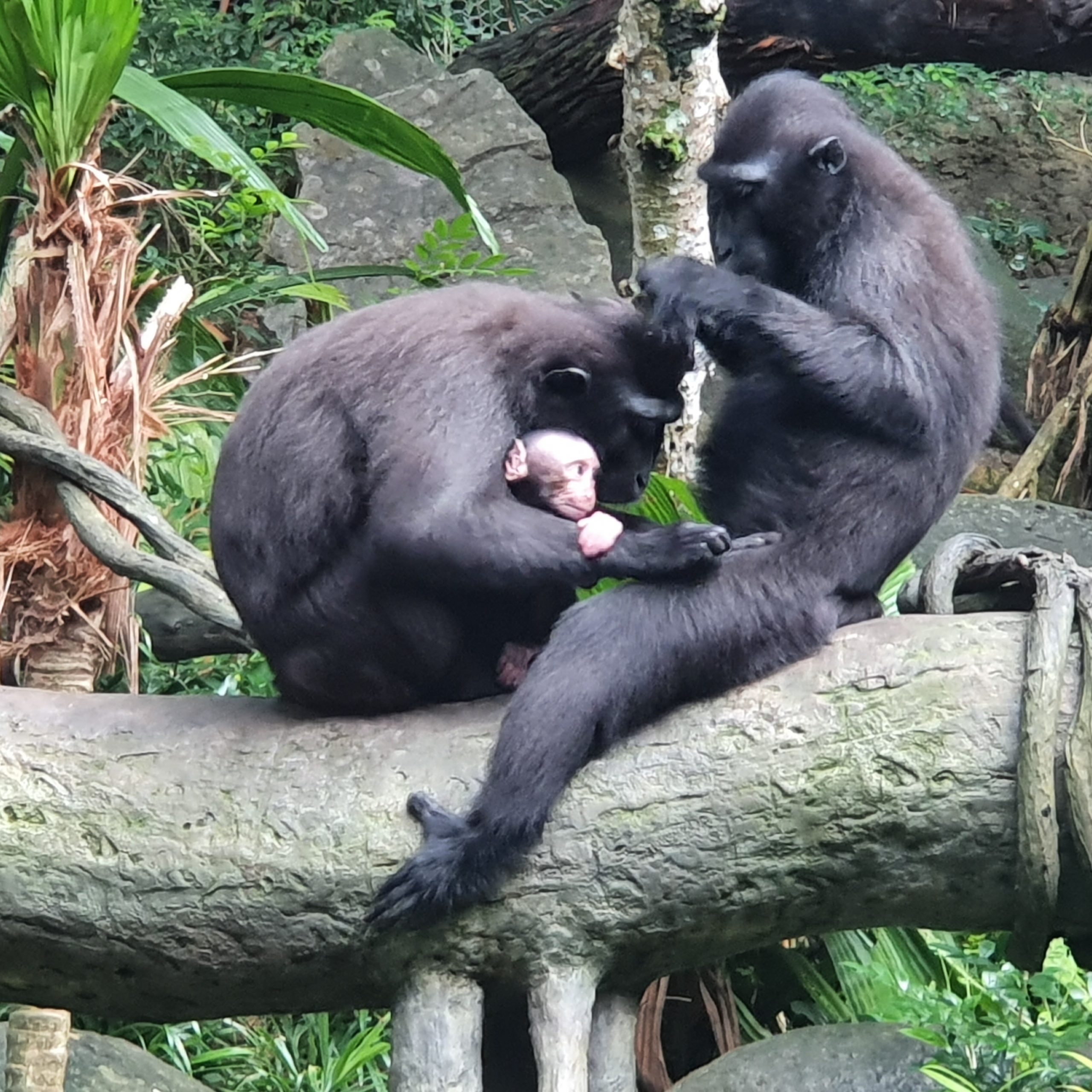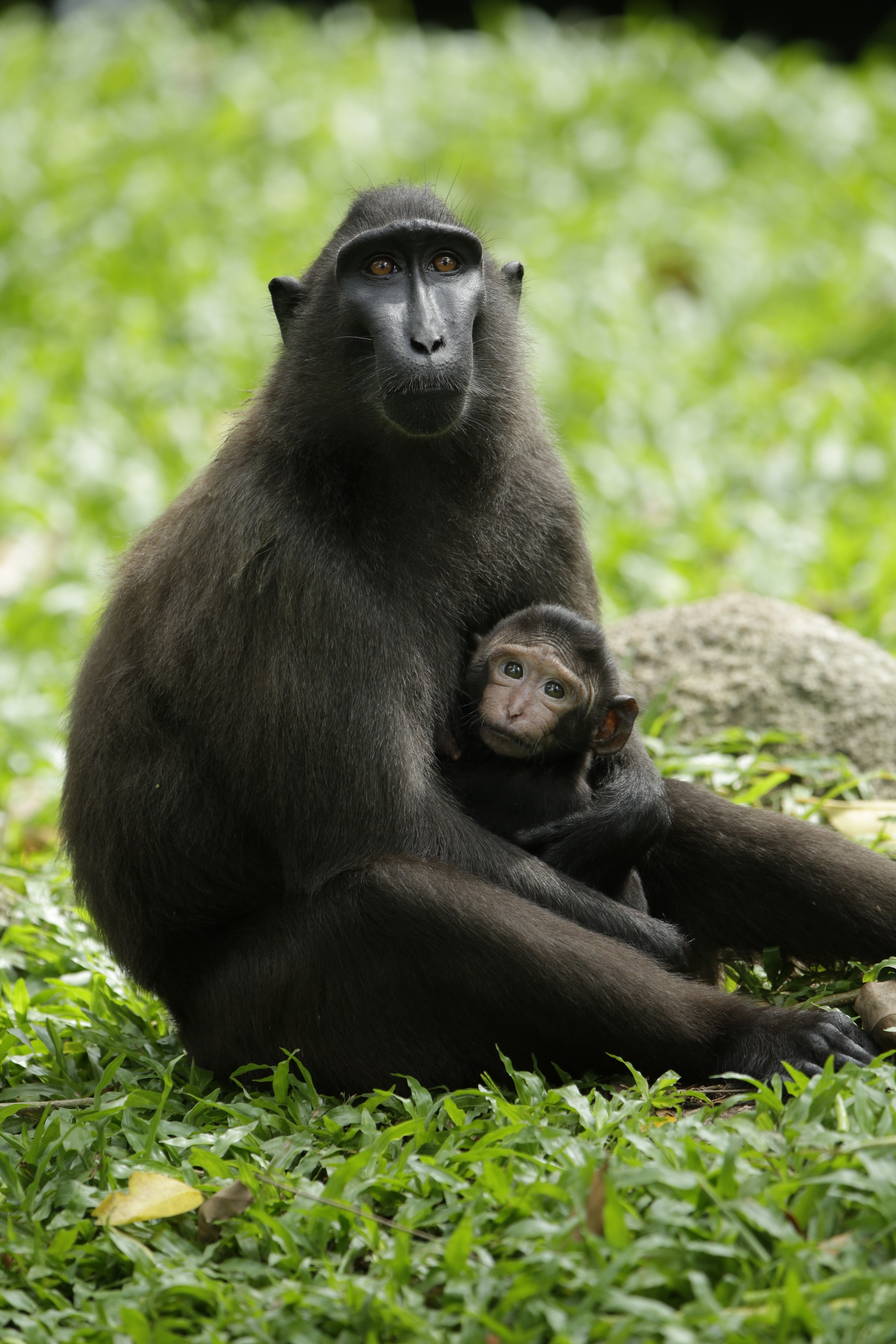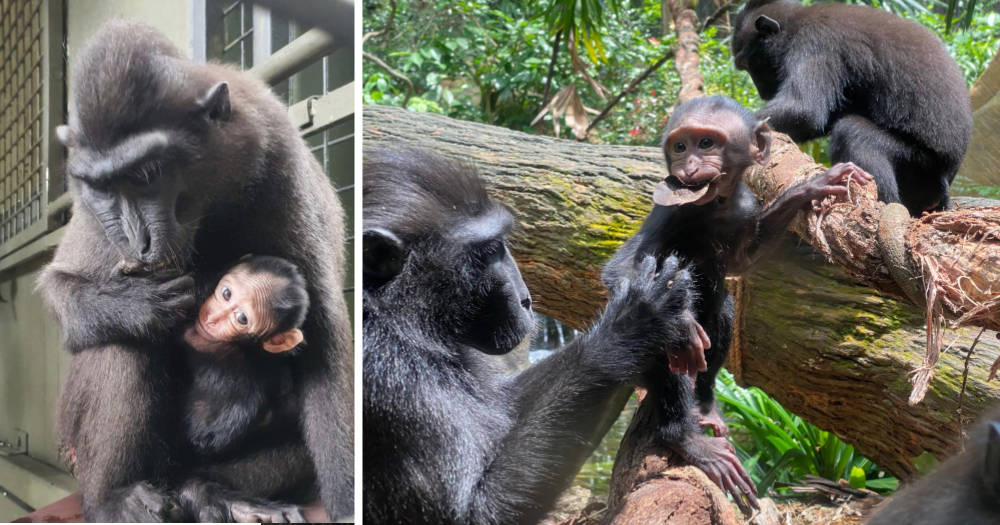The Celebes crested macaque is critically-endangered.
The monkeys are endemic to the Indonesian island of Sulawesi and its neighbouring islands, which means that they cannot be found anywhere else in the world.
The wild population of Celebes crested macaques there is said to have declined by as much as 80 per cent in the last 40 years, however, because of illegal hunting and habitat loss, as more land gets taken up by human settlements and agriculture.
But a troop of Celebes crested macaques in the Singapore Zoo are marking the birth of their second male infant in two years.
Here's Joyo, the second son of Dewi and Doni:
 Ready to explore. Photo credits: Wildlife Reserves Singapore.
Ready to explore. Photo credits: Wildlife Reserves Singapore.
Joyo was born just in time for the return of guests to the Singapore Zoo, after a three-month closure due to the Covid-19 situation.
While he may look rather sparse up top at the moment, Joyo will soon be sporting the distinctive hairstyle (or crest) which gives the Celebes crested macaques their name.
These macaques are known to be social, and to nurse their young for around a year.
Here's Joyo clinging to his mother Dewi, and his adoptive aunt Ria, who is unrelated to the family.
 Baby Joyo clinging to his mother, Dewi, who is being groomed by another female monkey, Ria. Photo credits: Wildlife Reserves Singapore.
Baby Joyo clinging to his mother, Dewi, who is being groomed by another female monkey, Ria. Photo credits: Wildlife Reserves Singapore.
 Agung, a Celebes crested macaque, and his mother Dewi. Photo credits: Wildlife Reserves Singapore
Agung, a Celebes crested macaque, and his mother Dewi. Photo credits: Wildlife Reserves Singapore
Joyo's elder brother, Agung, was born in 2018, and was one of 700 newborns at Singapore's wildlife parks in that year.
WRS' efforts in conservation
The birth of Joyo and Agung help support the sustainability of their critically-endangered species, as their addition to the population in human care increases genetic diversity.
The Celebes crested macaques at the Singapore Zoo are part of a conservation breeding programme called the Ex-situ Programme (EEP), managed by the European Association of Zoos and Aquaria (EAZA).
Under the EEP, animals will be exchanged between participating zoos to ensure a sustainable, genetically-diverse population. This can potentially help wild populations, if the conditions are right.
Wildlife Reserves Singapore also plays a role in the conservation of the species in the wild, through its support for a conservation project in Indonesia that conducts outreach and field projects, Selamatkan Yaki.
We deliver more stories to you on LinkedIn
Top photos from Wildlife Reserves Singapore
If you like what you read, follow us on Facebook, Instagram, Twitter and Telegram to get the latest updates.
